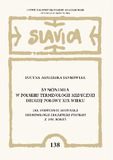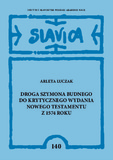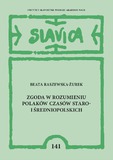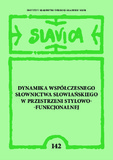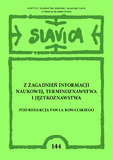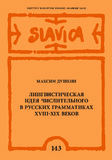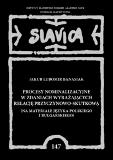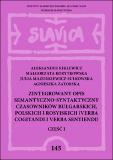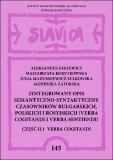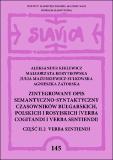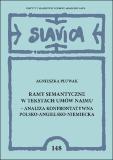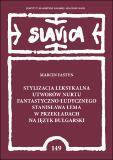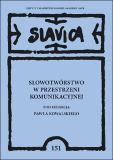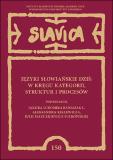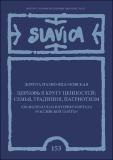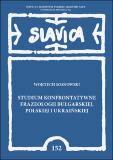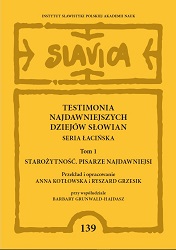
Testimonia of the earliest history of Slavs. Latin series, vol. 1: Antiquity. Earliest writers
Testimonia najdawniejszych dziejów Słowian. Seria łacińska, t. 1: Starożytność. Pisarze najdawniejsi
Keywords: sources;Central Eastern Europe;Slavs;Roman Empire;ancient geography;ethnonyms;toponyms;
The volume presents excerpts from writings by Ancient Roman authors of the turn of the Christian era which concern Slavs as well as, more generally, the Ancient Roman geography of Central-Eastern Europe. Each excerpt – accompanied by a note about its author and the work from which it originates, including an overview of the text’s manuscripts, editions and critical studies – is presented in its Latin original as well as in Polish translation. The second part of the book is devoted to historiographical commentary to the excerpted sources and comprises a geographical lexicon of the Barbaricum: the Northern, Central and Eastern Europe with adjacent Asian territories. Presented and discussed in it are over 1.000 Ancient ethno- and toponyms.
More...
